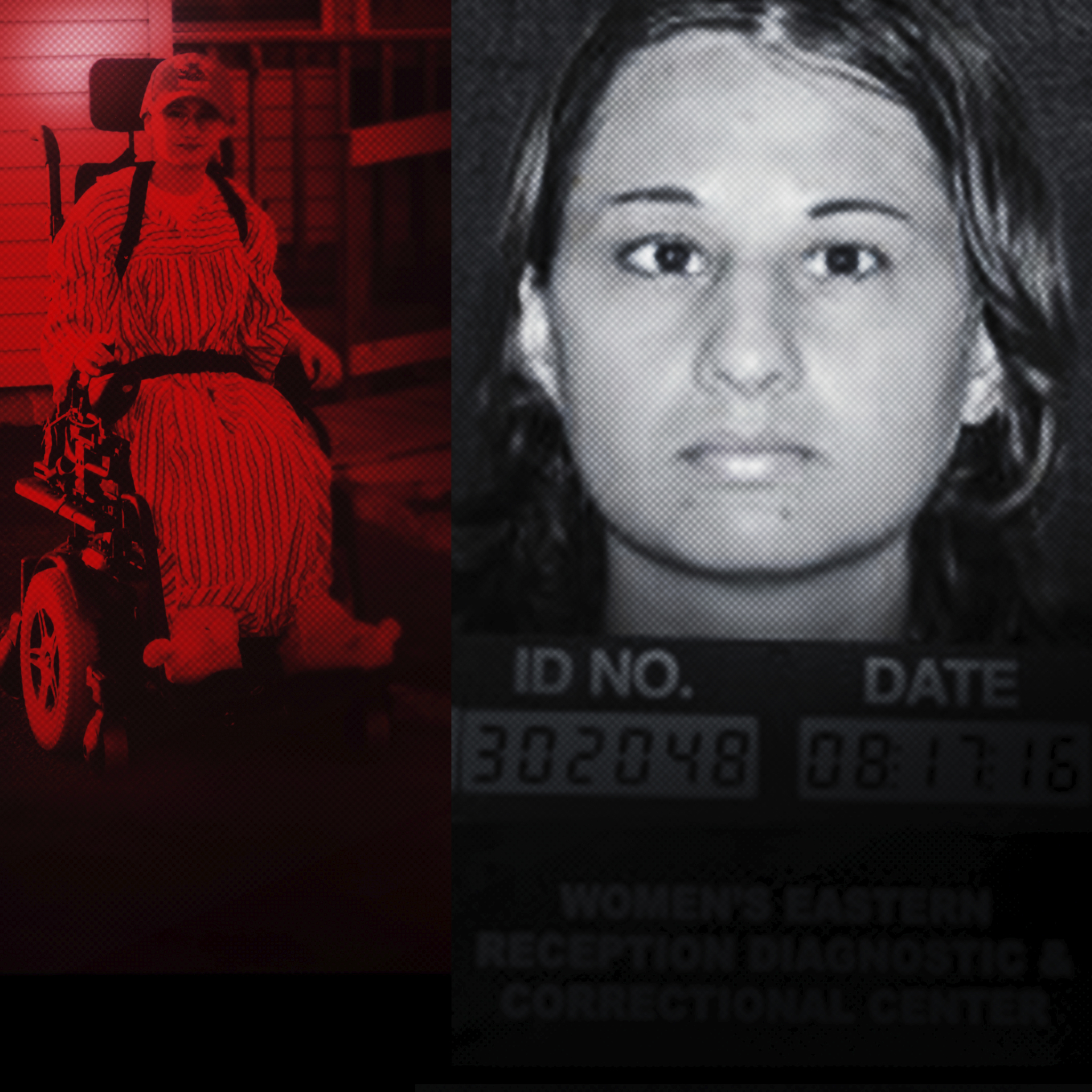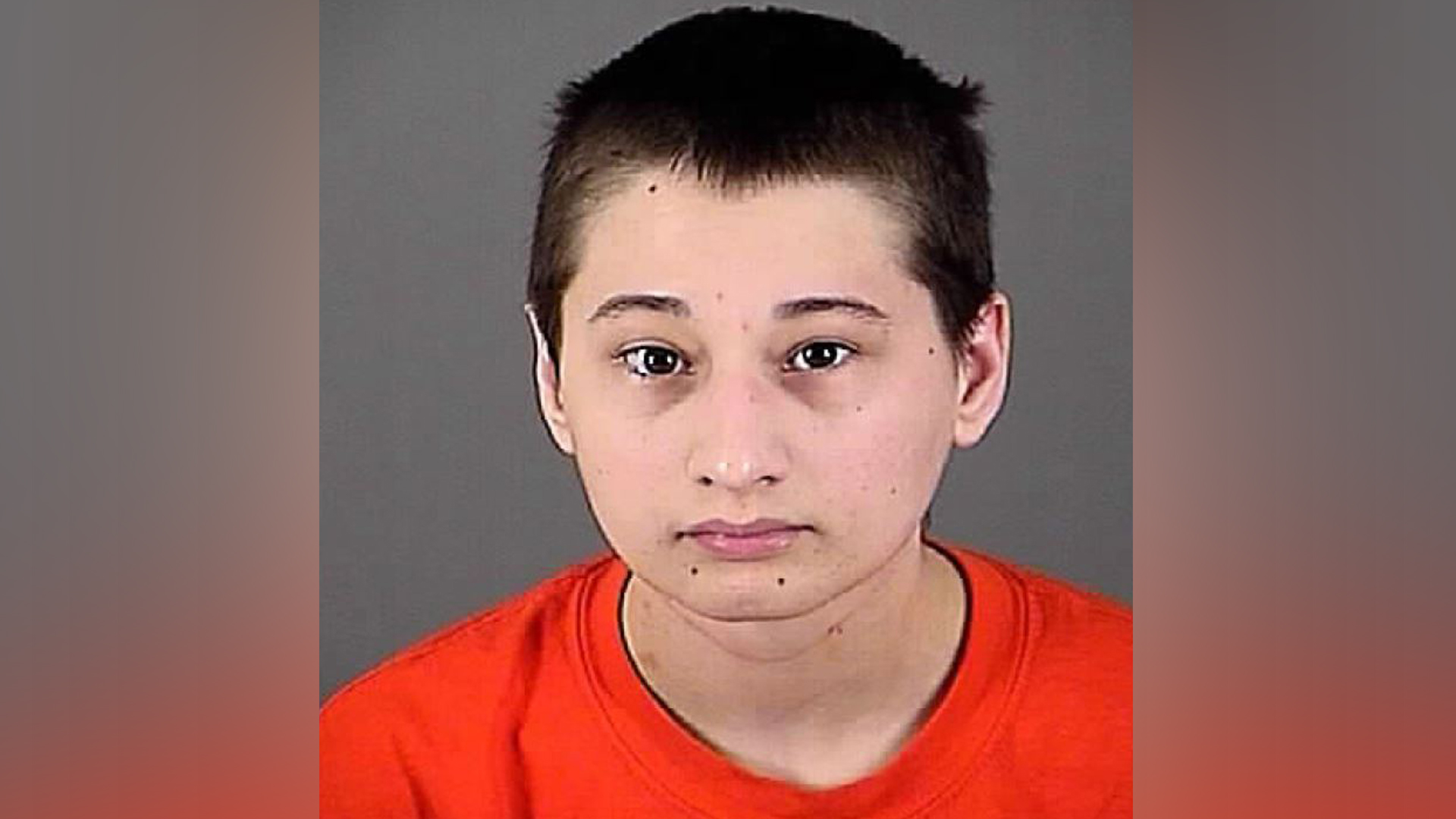When we talk about true crime stories, the case of Gypsy Rose Blanchard stands out as one of the most twisted and disturbing tales of our time. Her life, filled with deceit, manipulation, and ultimately, murder, has captivated audiences worldwide. This isn't just another crime story—it's a chilling reminder of how far people can go when trapped in a web of lies. Let's dive into the prison confession of Gypsy Rose Blanchard and uncover the shocking truths behind her actions.
Before we get into the nitty-gritty details, it's important to understand the background that shaped this infamous story. Gypsy Rose wasn't just a victim of her circumstances; she was also an active participant in a dangerous game. Her life was a perfect storm of mental health issues, toxic relationships, and sheer desperation. As we peel back the layers, you'll see why this case is so compelling.
This story isn't just about crime; it's about the human psyche, the lengths we go to survive, and the consequences of our choices. Whether you're a true crime enthusiast or simply curious about the darker sides of human nature, this article will leave you questioning everything you thought you knew about justice and morality.
- Jeremy Allen White Dating The Inside Scoop Yoursquove Been Waiting For
- December 19 Zodiac What Makes Sagittarius So Magnetic And Special
Table of Contents
- Biography of Gypsy Rose Blanchard
- Early Life and Manipulation
- The Fake Illnesses
- The Murder Plot
- Her Prison Confession
- The Psychology Behind the Crime
- Legal Implications
- Impact on Society
- Media Representation
- Conclusion
Biography of Gypsy Rose Blanchard
Who Was Gypsy Rose Blanchard?
Gypsy Rose Blanchard was born on June 12, 1991, in Springfield, Missouri. Her life was anything but ordinary, filled with a mix of tragedy and manipulation that would eventually lead to a shocking murder. To understand her actions, we need to delve into her biography and the circumstances that shaped her. Here's a quick rundown:
| Full Name | Gypsy Rose Blanchard |
|---|---|
| Date of Birth | June 12, 1991 |
| Place of Birth | Springfield, Missouri |
| Occupation | Housewife turned Criminal |
| Famous For | Convicted of Murdering Her Mother |
Her story isn't just about her actions but also about the environment she grew up in. Her mother, Dee Dee Blanchard, played a pivotal role in creating the perfect storm of circumstances that led to her eventual downfall.
Early Life and Manipulation
Growing up, Gypsy Rose was subjected to a life of isolation and manipulation. Her mother, Dee Dee, convinced the world that Gypsy was severely ill, suffering from a host of medical conditions that left her bedridden and dependent on her mother for survival. But the truth? It was all a lie. Dee Dee had been faking her daughter's illnesses for years, a condition known as Munchausen by Proxy.
- Jose Baston And Eva Longoria A Love Story That Captured Hearts Worldwide
- How To Remove Wine Labels The Ultimate Guide For Wine Enthusiasts
This early life of deception set the stage for Gypsy's future actions. Living in a world where nothing was real, she grew up believing that lying was the norm. This upbringing would later play a crucial role in her decision to commit murder.
The Fake Illnesses
How Far Did Dee Dee Go?
Dee Dee's manipulation didn't stop at mere lies. She went as far as to falsify medical records, induce symptoms, and even withhold food and medicine from Gypsy to maintain the illusion of illness. This extreme level of control left Gypsy feeling trapped and desperate for a way out.
Experts have noted that Dee Dee's actions were a textbook case of Munchausen by Proxy, a psychological disorder where a caregiver fabricates or induces illness in someone under their care. The extent of Dee Dee's manipulation was staggering, and it ultimately led to her daughter's radical actions.
The Murder Plot
By the time Gypsy reached adulthood, she was desperate to escape her mother's control. Enter Nicholas Godejohn, a man who became her confidant and eventual co-conspirator in a murder plot. Together, they hatched a plan to kill Dee Dee and free Gypsy from her suffocating life.
The murder itself was brutal and cold-blooded. On June 10, 2015, Godejohn shot Dee Dee multiple times, and Gypsy, who was present during the crime, did nothing to stop it. This act of violence would change their lives forever and thrust them into the spotlight of one of the most infamous true crime cases of our time.
Her Prison Confession
After the murder, Gypsy and Godejohn were quickly apprehended, and their trial became a media sensation. During her prison confession, Gypsy revealed the extent of her manipulation and the reasons behind her actions. She claimed that she felt trapped and that killing her mother was the only way to gain her freedom.
Here are some key points from her confession:
- She felt like a prisoner in her own home.
- Dee Dee's manipulation had left her with no sense of self.
- She believed that killing her mother was the only way to break free.
Her words painted a picture of a young woman who had been broken by years of abuse and manipulation. But was this the truth, or was it just another layer of deceit?
The Psychology Behind the Crime
Understanding the Mind of Gypsy Rose
Psychologists have long debated the motivations behind Gypsy's actions. Was she a victim of circumstance, or was she a willing participant in a heinous crime? The answer, as it turns out, is more complex than we might think.
Studies have shown that individuals who grow up in environments of extreme manipulation often struggle with identity and decision-making. Gypsy's upbringing, combined with her mental health issues, created a perfect storm of factors that led to her radical actions. Experts believe that her decision to kill her mother was a desperate attempt to reclaim her life and sense of self.
Legal Implications
The legal proceedings surrounding Gypsy's case were nothing short of dramatic. Both she and Godejohn were found guilty of first-degree murder and sentenced to life in prison without the possibility of parole. The judge in the case noted that the severity of the crime warranted the harshest punishment possible.
Legal experts have pointed out that the case highlights the importance of understanding the psychological factors behind crime. It also raises questions about the role of mental health in the justice system and whether our current laws are equipped to handle such complex cases.
Impact on Society
Gypsy Rose's case has had a profound impact on society, sparking conversations about mental health, manipulation, and the justice system. It has also raised awareness about the dangers of Munchausen by Proxy and the importance of recognizing the signs of such abuse.
Many people have been left questioning whether Gypsy was truly responsible for her actions or if she was a victim of circumstance. This debate has led to a deeper understanding of the complexities of human behavior and the need for more nuanced approaches to crime and punishment.
Media Representation
The media coverage of Gypsy Rose's case has been extensive, with documentaries, books, and even a Netflix series exploring the details of her life and crime. While this attention has helped shed light on the case, it has also raised concerns about the sensationalization of true crime stories.
Some critics argue that the media's portrayal of Gypsy as a sympathetic victim undermines the severity of her crime. Others believe that it's important to understand the context behind her actions to prevent similar tragedies in the future. Regardless of perspective, the media's role in shaping public perception cannot be ignored.
Conclusion
As we wrap up this deep dive into the prison confession of Gypsy Rose Blanchard, it's clear that her case is more than just a true crime story. It's a complex tale of manipulation, mental health, and the lengths people will go to escape their circumstances. Whether you see her as a victim or a criminal, there's no denying the impact her actions have had on society.
So, what can we take away from this story? First, the importance of recognizing the signs of abuse and seeking help when needed. Second, the need for a more nuanced approach to crime and punishment that takes into account the psychological factors behind people's actions. And finally, the power of storytelling in shaping our understanding of complex issues.
Feel free to leave your thoughts in the comments below. Do you think Gypsy was a victim of circumstance, or was she a willing participant in a heinous crime? Let's continue the conversation and explore the darker sides of human nature together.
- Fintechzoom Apple Stock Price Prediction Whatrsquos Next For The Tech Giant
- Is Dr David Jeremiah Still Alive The Truth Behind The Question


